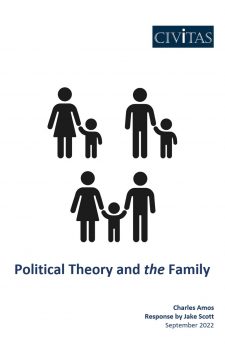Political Theory and the Family
Charles Amos with response from Jake Scott, September 2022
This philosophical discussion paper looks at the creation of the modern welfare state in 1942 and its impact on family formation. Charles Amos argues from a libertarian perspective drawing on Robert Nozick, Murray Rothbard and Herbert Spencer, showing libertarianism to be an improved upon form of rights-based liberalism, as defended by philosophers such as Immanuel Kant and John Locke.
Amos claims that in supporting lone parenthood, the welfare state violates the principle of liberal neutrality. Amos then considers two potential rebuttals to his libertarian arguments, framed in the context of Karl Widerquist and Jeremy Waldron’s objections to libertarianism. Widerquist’s independentian critique claims that if an individual, such as a single parent, is forced to work out of necessity, then they can no longer be considered ‘free’. Therefore, welfare is justifiable and necessary as it ensures free participation in the labour market. Waldron, via modern liberal contractualist arguments, takes a more direct route, claiming individuals simply have the right to not undergo severe suffering or death, and this warrants taxation to prevent such eventualities. Each is rejected by Amos.
The second verdict on the welfare state is offered by Jake Scott. In addition to responding to Amos’s libertarianism, Scott argues, from a conservative perspective, for why the family is important – and why the state has a legitimate interest in supporting the existence of the traditional family in particular. To do this, Scott first makes a metaphysical distinction between himself and Amos to assert that Amos’ central assumption of libertarianism is misleading when discussing families. Scott stresses the state has an interest in preserving the institution of the family.
Finally, Scott makes three recommendations on how the state can shift the focus back to two-parent households. Whilst Amos suggests the removal of all family-related benefits, Scott argues that this would be damaging to the already fragile family life in Britain. For a state which is more supportive of family life, Scott instead recommends that married couples should be taxed as a single person; that mortgage relief should be granted in the first 10 years of any child’s life; and that tax relief should be given to larger families.
Download PDF
